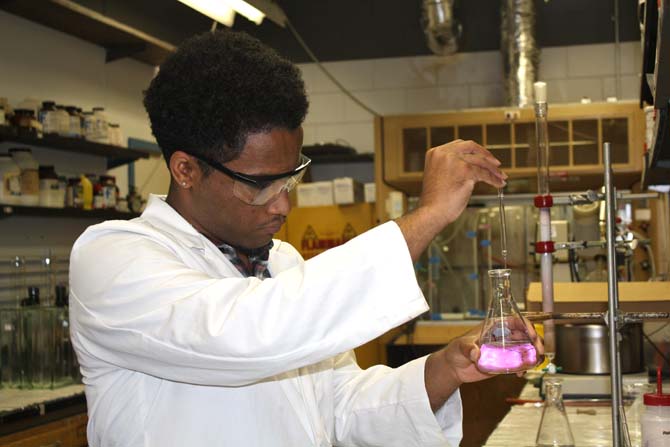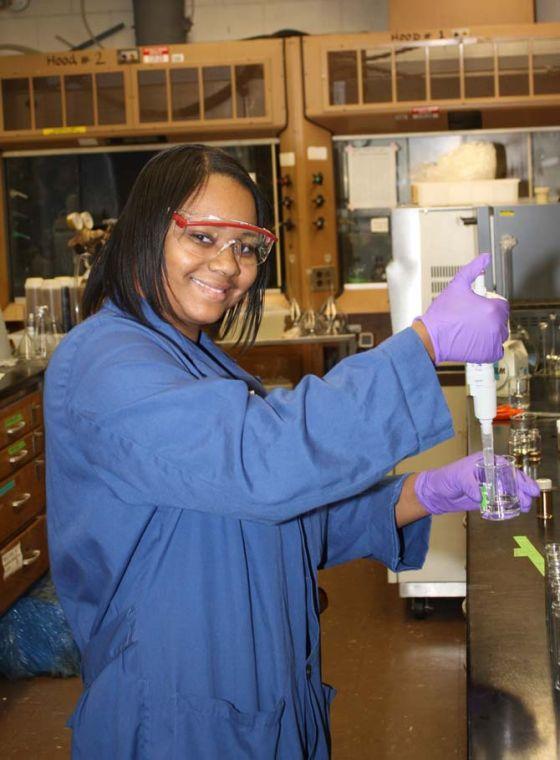Minority and underrepresented graduate students at the University now have the chance to participate in the Initiative for Maximizing Student Development program, previously only available to undergraduates.
Students enrolled in the program get practical experience that prepares them for graduate and Ph.D. research programs by working closely with mentors in biomedical and behavioral labs, attending regional or national conferences, workshops and receiving counseling from IMSD staff members.
The program spans across disciplines at the University ranging from the College of Science to the College of Agriculture.
IMSD received a grant worth more than $2 million in September from the National Institute of General Medical Sciences of the National Institutes of Health, which has funded the program since its inception in 2004, and will fund activities in Phase III of the program until August 2018, according to Graca Vicente, IMSD program director.
IMSD staff has to reapply for funds granted by the NIH every 4-5 years, and the past accomplishments the program has had with students pursuing post-undergraduate degrees prompted additional funding for graduate students starting this semester, Vicente said.
Over the past ten years, the University Department of Chemistry emerged as the leading producer of African American Ph.D. students in the U.S., according to IMSD Program Manager and Counselor Gretchen Schneider. In the past five years, 28 African Americans were awarded a Ph.D. from the department of chemistry, she said, and IMSD students have gone on to pursue a Ph.D. at institutions such as Yale, USC, Penn State and Vanderbilt and two have received a Ph.D. from Wake Forest and UNO.
“The success rate we had influenced [NIH] and persuaded them to give us money for graduate students,” Schneider said.
There are currently 17 undergraduates enrolled in IMSD and one graduate student. There is room for additional students to enroll and applications are still being accepted, which are available online, Schneider said.
Biochemistry senior and IMSD scholar Caleb Darensbourg said in an email he is gaining valuable experience from the program.
“The program is amazing because it gives us a look inside of the lives of graduate students and professors,” he said. “We get hands-on work in biomedical research and get to learn the nuances of what it truly means to pursue a career in research.”
When not working in the lab, Darensbourg said the opportunity to interact with diverse people from around the country at research conferences and seminars on campus gives an appreciation of the wealth of resources made available through the program.
“This is great for networking and getting exposure,” he said. “Guest speakers from many different fields of study come to speak to us and give us advice on how to succeed in the world of research.”
Chemistry senior and IMSD scholar Leo Fontenot said in an email he is grateful to be enrolled in IMSD, where he helps with cancer research. The experience so far has been one of the greatest opportunities of his undergraduate career and will help his future in research, he said.
“I’m very grateful for IMSD exposing me to biomedical research because you get the reality of science in medicine instead of the usual encounter with medicine you get, such as the experience with a medical doctor,” he said. “There’s a great chance that I’ll become a biomedical scientist in the future; the more time I spend with my research group, the more I’m pulled towards a career in research juxtaposed to a professional career such as a pharmacist or medical doctor.”
ISMD now available to graduate students
October 17, 2013






